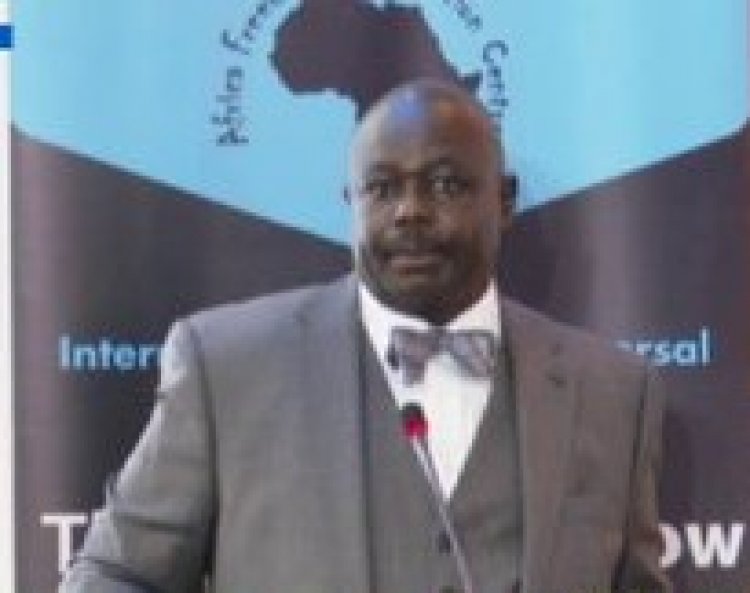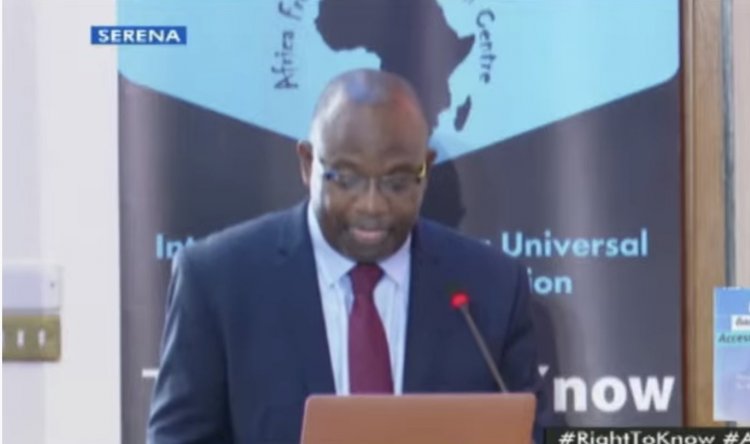AFIC, partners mark Day for Access to Information with a call to strengthen regional legislation of access to information
The 2021 International Day of Universal Aslccess To Information ighlights the importance of expanding access to information laws, and their implementation to build back strong institutions for sustainable development.

Although various treaties in Africa have recognized the relevancy of Access To Information as a fundamental human right that serves the entire public, lack of citizens access to information continues to hamper the realization of SDGs and other rights.
In some Eastern African countries including Uganda, Kenya, Tanzania, Rwanda, Burundi, South Sudan, Ethiopia, Seychelles, Somalia, among others, the number of laws that guarantee the right of access to information adopted has grown to 6 in 2018, implementation of national laws promoting public access to information still remains wanting.
The 2021 commemoration of the International Day of Universal Access to Information (IDUAI) with the theme “The Right to
Know – Building Back Better with Access to Information” in Eastern Africa organised by Africa Freedom of Information (AFIC) and partners has highlighted the importance of expanding access to information laws, and their implementation to build back strong institutions for sustainable development.
The Speaker of Parliament, Rt. Hon. Jacob Olanya while officiating at the occasion to mark IDUAI held at Serena hotel and online platforms in 28th Sept' 2021 tasked the Civil Society Organisations to conduct a study to ascertain how access to information can transform the lives of Ugandan population to enlight him on how best to strengthen the law’s legislation.
“Since the enactment of the Access to Information Act over 10 years of what benefit has this law been to the ordinary person? Please do that research you people in the Civil Society Organizations and tell me. My understanding is the overall purpose in how it transforms the lives of citizens in this country” he said
He said that there is need to accelerate the right to access to the entire population especially in the rural areas where people find hardships accessing communication facilities.
“Where I come from the majority of people do not have access to a telephone and here we are talking of Twitter and Facebook. How are we being relevant to the bigger population?” he said

The Executive Director of Africa Freedom of Information Centre, Gilbert Sendugwa pictured above in his opening remarks said that while rebuilding lives and economies affected by the COVID-19 pandemic, there is need to put access to information at the forefront.
“The COVID -19 pandemic has significantly affected lives and economies. It is crucial that public access to information has to be at the centre of rebuilding affected lives and economies” he said
Robert Kotchani, Country Representative OHCHR highlighted the need to reiterate the commitment to make access to information a privilege to ensure we attain the Sustainable development Goals especially goal 16 which talks about peace, justice, and strong institutions.
AFIC in partnering with UNESCO Regional office for Eastern Africa, the African Union Commission, United Nations Human Rights Office of the High Commissioner-Uganda, the East African Community (EAC), and Article 19 East Africa are commemorating the 2021 IDUAI with series of activities which started with an online stakeholders in Eastern Africa on 28th September, followed with a youth essay contest on the promotion of access to information and a launch of a regional assessment of the state of implementation of the UNESCO Information For All (IFAP) areas.












